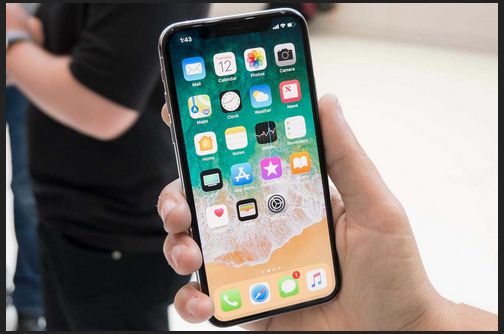
The following article deals specifically with why using an iPhone VPN (Virtual Private Network) is best practice for its security. As is using a VPN on an Android smartphone .
Apple markets the iPhone as being more secure and more private than other smartphones. But are you aware that iPhones, by default, do not include an end-to-end encrypted messaging app or warn users about app-location requests?
iPhone VPN – Apple does not prevent the snooping on users’ unencrypted web-browsing
Currently, [Dec. 2021] Apple does not prevent the snooping on users’ unencrypted web-browsing. Read about this security flaw in the following article.
A SECURITY weak point in Apple’s iPhone technology opens user iMessages up to hackers and unwanted observation –
“An estimated 1billion users could be impacted by the flaw, which is a failure in the end-to-end encryption process. – A SECURITY weak point in Apple’s iPhone technology opens user iMessages up to hackers and unwanted observation. An estimated 1billion users could be impacted by the flaw, which is a failure in the end-to-end encryption process.”
https://www.thesun.co.uk/tech/16948160/iphone-icloud-imessage-hack-apple-security-vulnerability/
Many app developers for iOS ignore Apple’s strict security requirements
Bear in mind that research shows that that many developers of apps for iOS (Apple’s mobile operating system) ignore Apple’s strict security requirements by not adding end-to-end encryption to their apps.
There is also the additional security problem of Wi-Fi networks or mobile phone carriers that sell users’ data to make money.
An iPhone VPN
From a security point of view, iPhone users would benefit a great deal by using a Virtual Private Network (VPN).
An iPhone VPN, or any other kind of VPN, creates an encrypted tunnel between the phone, its carrier (EE, Vodafone, BT, etc.) and the people you are phoning or the websites that you view. In other words, all of your phone’s traffic passes through that tunnel and is impervious to surveillance.
In short, an iPhone VPN can protect where Apple does not.
Does using a Virtual Private Network (VPN) protect your privacy from hackers and legal snooping
An iPhone VPN encrypts your phone’s web activity
Using a VPN on your phone protects you against all of the same kind of attacks that could come your way if you were browsing the web on your laptop or desktop PC. But protecting a smartphone is more crucial because of the greater number of untrusted connections and apps that the typical user encounters. For example, most webpages are served over HTTPS (the encrypted form of HTTP), but too many are not
The good news for Internet users is that efforts have been underway for many years to encrypt the entire web. (Of course, not including the Dark Web that the search engines don’t spider with their bots). That said, it is important to remember that today’s Internet is not yet completely private or secure.
VPNs encrypt your iPhone’s app traffic
Encrypting an iPhone’s web activity while browsing online is best practice, but unfortunately, many iPhone apps are connecting to the Internet constantly, working in the cloud online, checking for notifications and updates. Cybercriminals are experts at finding weaknesses and discovering ways in which to gain control of a connection.
Everyone knows how regularly Microsoft issues security patches for serious vulnerabilities that, if put to use by cybercriminals, give them remote control of Windows and its other software. The developers of phone apps do not have anywhere near the resources and experience as Microsoft. So, it is not too difficult to imagine how many security holes, including the quality of the encryption, are present in apps that are just sitting there waiting for cybercriminals to find and exploit.
Probably the most alarming aspect of all is that there is no way that users can distinguish between the best and the worst apps because to do that requires specialist knowledge and equipment.
Using a first class VPN makes sure that cybercriminals cannot find and eavesdrop on your connection, because it uses the VPN’s IP address instead of the IP address that your mobile carrier provides for it..
VPNs prevent mobile carriers from monetising users’ data
Bear in mind that in 2020, the US Federal Communications Commission announced a collective $200 million in fines against Verizon, AT&T, Sprint and T-Mobile for the sale of user location data without the users’ consent. The apps that you use and how you use them is also important data that fetches a price.
An iPhone VPN hides most of your web activity from your mobile carrier just as a VPN on a desktop or laptop PC hides your web activity from your Internet Service Provider (ISP). If a VPN does not keep logs, which is the case with the bes VPNs, there is no way that even the government of your country can obtain it.